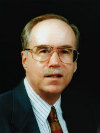International Politics
SPR release sparks political debateNot since the Persian Gulf War or even the late 1970s, when sweater-clad Jimmy Carter decried the energy crisis on national TV, has the nation�s attention been so riveted on oil as it is this fall. Release of 30 million barrels from the Strategic Petroleum Reserve, with Al Gore leading the charge and proclaiming a new crisis, affirmed the national fixation on petroleum cost and supply. The SPR has been a political football for years, although as a much dimmer blip on the national radar. Lawmakers, primarily from Texas and the Southwest, have pushed to buy crude for the SPR when prices were low, such as early last year, while lawmakers from elsewhere have lobbied more successfully to sell portions of the reserve to offset federal red ink. Now, for the second time since its 1975 formation, the reserve has been used in an apparent response to high oil prices rather than its intended purpose as insurance against a severe disruption in supplies. The Clinton administration also released 12 million barrels in the spring of 1996, during Clinton�s campaign against Bob Dole, specifically in response to spiking pump prices. Focus of national debate is political. National debate focused on whether the move was political, aimed at lifting the economy and Gore past November 7, while the industry�s response highlighted a more fundamental concern. Should Washington�s influence on energy be limited to diplomatic prowess; or should it be in the business of swaying prices, assuming the role of a prolific � if temporary � producer? DOE�s Bill Richardson argued strongly that the action was aimed at preventing a supply disruption, citing the potential for slow deliveries on home heating oil in the Northeast this winter. "Price was not a factor in the deliberations," he deadpanned before the Senate Energy and Natural Resources Committee. A skeptical Sen. Don Nickles, R-Oklahoma, shot back that the SPR, "Was not meant to alleviate price . . . seven weeks before an election." As crude prices slid after the announcement, the Independent Petroleum Association of America cited four arguments against the move in a fax to members:
Well-known economist Robert J. Samuelson, writing on the opinion page of The Washington Post, stated the obvious. "Only the innocent could believe that President Clinton�s decision to release (SPR oil) wasn�t driven mainly by politics. Whatever the stated justifications, the essence of this act is to provide a roughly $1-billion federal subsidy to Al Gore�s campaign." API cites error of targeting price. The American Petroleum Institute left no doubt about its view. "The Strategic Petroleum Reserve was established by Congress to address supply disruptions. It was not intended � and should never be used � to manipulate prices. History has shown time and again that government interference in the market place will lead to negative consequences such as the long gas lines of the 1970s." API said the SPR flap also underscored the need for "a comprehensive energy policy, something absent for a number of years." API President/CEO Red Cavaney, in September remarks to the National Association of State Energy Officials, offered several elements he said should anchor that policy, including:
Cavaney said U.S. energy capacity is eroding in an alarming way � one of the underlying factors behind this year�s topsy-turvy conditions. "U.S. oil production in the last 30 years has slipped almost 40%, to an average 5.9 MMbpd in the first six months of 2000," he said. Since 1973, in the face of very solid demand, U.S. output of dry natural gas has declined 14%. While there were 315 U.S. refineries operating in 1981, the number has fallen to 155 this year. Added to that has been a freeze on the number of nuclear facilities since 1979 and serious talk about dismantling dams in the Northwest at the expense of needed hydroelectric power. "When the pull of November passes, few subjects will be more important
(than energy) for the new President and the new Congress when they take office in January," said the API
chief. William Garland has covered energy in Washington as a reporter and bureau chief for Texas newspapers and also as editor of The Energy Wire. |



